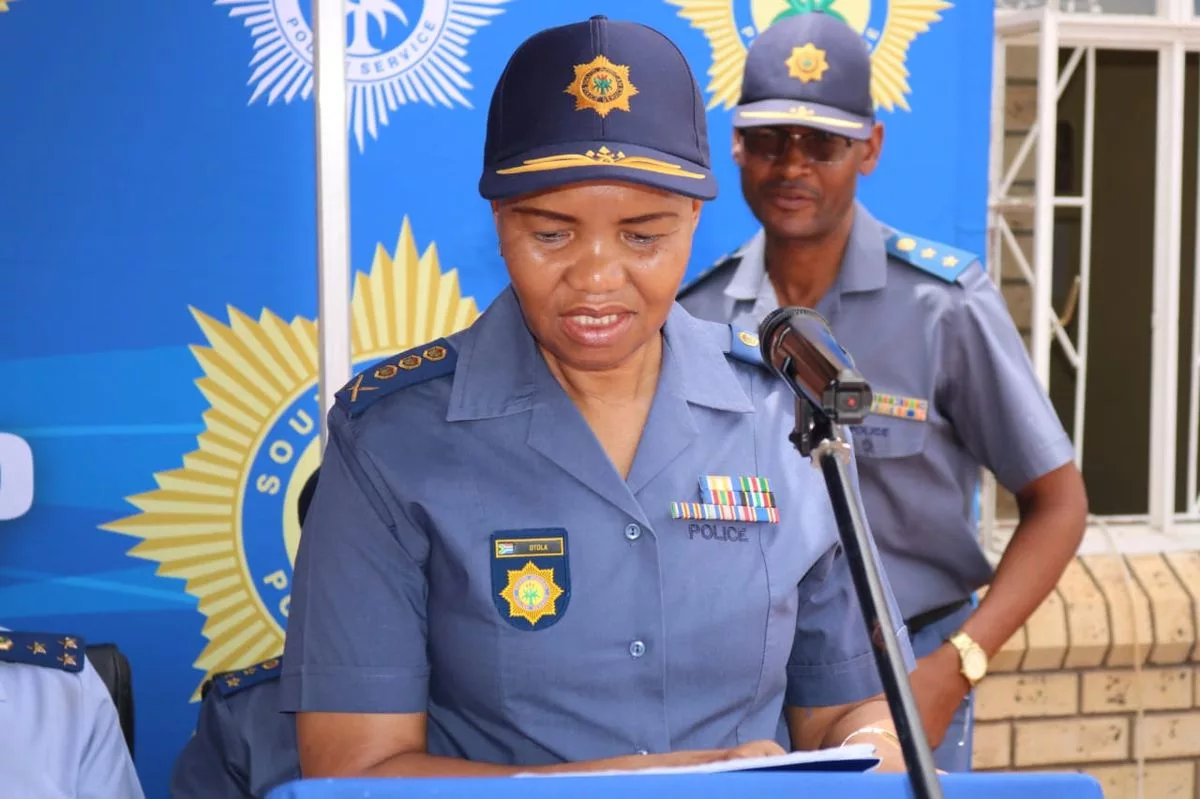In South Africa’s Northern Cape, a heartwarming initiative is changing how police treat victims of gender-based violence. They are creating special Victim Friendly Rooms in police stations, where survivors can feel safe and cared for. This project, led by Lieutenant General Koliswa Otola and her team, aims to build trust within the community and make victims feel supported. By using technology and compassionate approaches, police are not just enforcing laws; they are becoming a source of comfort and strength for those in need.
What is the initiative transforming policing in South Africa’s Northern Cape?
The initiative in South Africa’s Northern Cape focuses on creating Victim Friendly Rooms (VFRs) within police stations, offering safe spaces for survivors of gender-based violence. This empathetic approach aims to foster community trust, enhance support for victims, and integrate modern technology in policing practices.
In the vast and often harsh terrain of South Africa’s Northern Cape, a groundbreaking initiative is taking root, symbolizing a global shift toward more compassionate policing practices. On a particularly warm day in January 2025, the small town of Heuningvlei, situated in the expansive John Taolo Gaetsewe District, became the focal point of a significant transformation in law enforcement. This district, characterized by its sparse population and rugged landscape, witnessed an event that marked a new era in community policing, where empathy and duty are intertwined.
Pioneering a New Era of Empathetic Policing
Lieutenant General Koliswa Otola, Northern Cape’s Provincial Commissioner, spearheaded this initiative alongside Deputy Provincial Commissioner Major General Johnny Besnaar and Acting District Commissioner Brigadier Kenneth Baloyi. Together, they launched a project that transcends traditional policing methods, focusing on the renovation and enhancement of Victim Friendly Rooms (VFRs). This effort, though localized, aligns with the broader mission of the South African Police Service (SAPS) to incorporate empathy and support into their mandate.
VFRs are not just ordinary rooms within police stations; they are designed as sanctuaries for individuals who have suffered the trauma of gender-based violence and sexual offenses. The architecture and ambiance of these spaces represent a shift from basic law enforcement to providing protection and support. These rooms offer victims a refuge where they can connect with compassionate officers who are prepared to share their burdens. More than just physical spaces, they are symbols of a policing philosophy that prioritizes care and understanding.
A Commitment to Community Safety and Support
In her address, Lieutenant General Otola emphasized the importance of this initiative, underscoring SAPS’s commitment to creating a safe environment for vulnerable community members. She stated that these facilities are more than just shelters; they embody a policing philosophy that values the well-being of individuals over mere crime statistics. This initiative is part of a larger continuum of community-oriented policing, echoing movements from the late 20th century that aimed to foster trust between law enforcement and civilians through proactive and community-focused strategies.
The success of such initiatives often depends on the mutual understanding and cooperation between police and the communities they serve. The introduction of VFRs in the John Taolo Gaetsewe District represents a significant step toward building this understanding. These police stations are evolving into community hubs, offering not only protection but also solace and support to those in need.
Encouraging Victims to Come Forward
Beyond the physical refurbishment of rooms, this initiative calls for action, encouraging victims to break the silence. By promoting the use of tools like the MySAPS App and the hotline 08600 10111, SAPS demonstrates its commitment to accessibility and support. This modern approach to policing leverages digital tools to break down barriers, improve communication, and foster trust within the community.
SAPS’s integration of digital advancements into their operations reflects a global trend among law enforcement agencies. The use of technology, from mobile apps for crime reporting to databases that enhance communication, has become essential in modern policing. By adopting these tools, SAPS shows a dedication to staying at the forefront of technological advancements, enhancing their ability to serve and protect.
Leadership and Strategy in Policing
The presence of high-ranking officials like Lieutenant General Otola at the launch event highlights the initiative’s significance and the top-down commitment to its success. This involvement ensures that these efforts are not merely symbolic but integral to SAPS’s overall strategy to address gender-based violence and provide support to victims. The participation of officials across various levels of the SAPS hierarchy illustrates a comprehensive approach to these challenges.
Brigadier Irene Kopeledi’s role as the Provincial Head for Pro-Active Policing further underscores SAPS’s strategic focus on prevention and community engagement, aligning with global policing trends. This proactive stance is crucial in regions like the Northern Cape, where vast distances and sparse populations create unique challenges for conventional policing methods.
A Broader Narrative of Empathy and Support
The refurbishment of VFRs in the John Taolo Gaetsewe District is part of a broader societal shift toward recognizing and addressing the needs of victims of domestic violence and sexual offenses. These efforts resonate with contemporary movements for empowerment and resilience, reflecting a commitment to supporting those affected by gender-based violence.
This initiative is not an isolated event but part of a larger narrative of empathy and support. It represents a blend of tradition and innovation, where historical policing practices are enhanced by modern humanitarian values. Through these efforts, SAPS continues to build trust and security, ensuring that victims, once silenced by fear, find their voices strengthened by understanding and support.
FAQ: Transforming Policing in South Africa’s Northern Cape
What is the main goal of the initiative in Northern Cape?
The initiative aims to transform policing by creating Victim Friendly Rooms (VFRs) in police stations, providing safe spaces for survivors of gender-based violence. This project seeks to foster community trust and enhance support for victims through empathetic and compassionate responses.
Who is leading the initiative in the Northern Cape?
The initiative is spearheaded by Lieutenant General Koliswa Otola, the Provincial Commissioner, along with Deputy Provincial Commissioner Major General Johnny Besnaar and Acting District Commissioner Brigadier Kenneth Baloyi. Their leadership emphasizes a commitment to community-oriented, empathetic policing.
What are Victim Friendly Rooms (VFRs)?
Victim Friendly Rooms are specially designed spaces within police stations that serve as sanctuaries for individuals who have experienced gender-based violence or sexual offenses. They are equipped to provide not only physical safety but also emotional support, allowing victims to connect with compassionate officers.
How does this initiative encourage victims to come forward?
The initiative promotes the use of tools like the MySAPS App and the hotline 08600 10111, which provide accessible ways for victims to report incidents and seek assistance. By leveraging digital technology, SAPS aims to break down barriers and enhance communication with the community.
Why is this initiative significant for the community?
This initiative represents a significant shift in policing philosophy, prioritizing the well-being and support of individuals over traditional law enforcement metrics. It aims to build trust between the police and the community, transforming police stations into hubs of protection and solace for those in need.
How does technology play a role in this initiative?
Technology is integrated into this initiative through the use of mobile apps and digital communication tools to improve accessibility and response times. This modern approach reflects a global trend in law enforcement, demonstrating SAPS’s dedication to innovation while enhancing their ability to serve and protect the community.









